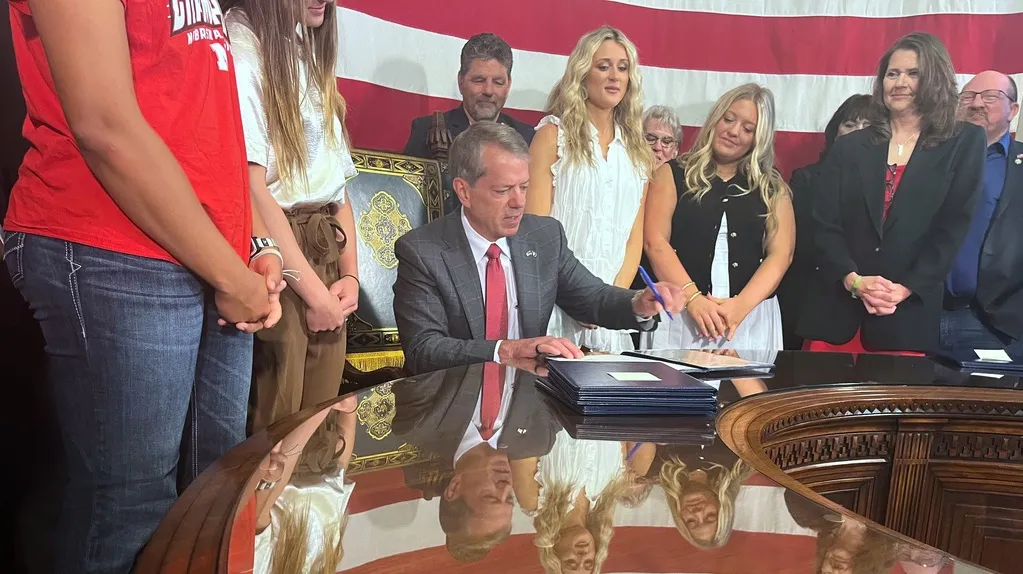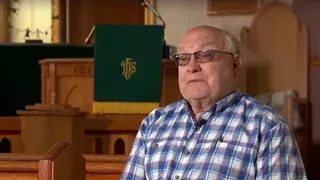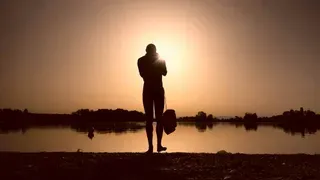March 10, 2013
Queen Elizabeth to Sign 54-Nation LGBT, Women's Rights Pledge
Steve Weinstein READ TIME: 4 MIN.
The conservative national British tabloid The Daily Mail scored a big scoop when it reported that Queen Elizabeth would sign a new charter promoting LGBT and women's rights on Monday.
In her first public appearance since she was briefly hospitalized for gastroenteritis, the 86-year-old monarch will sign a new Commonwealth Charter and will, the newspaper reports, "make a speech explaining her passionate commitment to it." To underscore her strong support of the charter, she is scheduled to do so live on television.
The Daily Mail quotes what it calls "insiders" as calling it a "'watershed moment --�the first time she has clearly signalled her support for gay rights in her 61-year reign." The very fact that Buckingham Palace, which could give the Kremlin a run for its party on keeping secrets, leaked the news could be taken as prepping the public.
While the charter doesn't explicitly mention gay rights per se, it declares, "'We are implacably opposed to all forms of discrimination, whether rooted in gender, race, colour, creed, political belief or other grounds.'" As per the Daily Mail, "The 'other grounds' is intended to refer to sexuality - but specific reference to 'gays and lesbians' was omitted in deference to Commonwealth countries with draconian anti-gay laws."
The Commonwealth is the successor to the British Empire, the largest such political organization in history. It is generally regarded as second only to the United Nations in its international scope. The Commonwealth includes some of the most homophobic governments and societies on the planet, including Cameroon, Ghana, Jamaica, Kenya, Nigeria and Pakistan.
Even among such a hall of shame, some nations stand out. Uganda is debating a "kill the gays" bill. Nigeria and Pakistan already have the death penalty on the books for homosexual acts. Seven other nations, including Uganda, have laws that make same-sex love a serious felony.
Some members are also exceptional in support of gay rights. South Africa was the only first nation in the world to include LGBT rights in its constitution and the fifth to legalize same-sex marriage. Canada is another standout.
A Major Turn for Commonwealth
In the past, several human-rights organizations have criticized the Commonwealth for being wishy-washy on such issues. In 2011, a formal study group recommended that the body formally take a stance on repealing anti-gay laws among its members. The group ended up shelving the report in the face of certain rejection by several member nations.
In August 2012, Peter Tatchell, perhaps Britain's foremost gay-rights activist, accused the queen of having "turned her back on the gay community. For six decades she has ignored LGBT Britons [sic]," he said in a statement. "Astonishingly, since she became Queen in 1952, the words 'gay' and 'lesbian' have never publicly passed her lips."
While that's not about to change at least literally, the new charter makes her position clear, according to the Daily Mail's sources. Royal aides have had discussions on the topic with U.K. Foreign Secretary William Hague, according to the paper.
The charter can be seen as another step in the evolution of Her Majesty's government. Although Prime Minister David Cameron is a Tory, the equivalent of the GOP here, he was instrumental in pushing a marriage-equality bill through Parliament.
The charter is more explicit about women's rights. Following other European nations, the U.K. is expected to change the right of succession to the throne so that the first-born child will become the heir-apparent regardless of sex.
Unlike much of Europe, England has never had a Salic law forbidding women from becoming "queens regnant"; that is, reigning monarchs, which cleared the way for such formidable rulers as Mary Tudor (a k a "Bloody Mary"), Victoria, William and Mary, and, of course, the first Elizabeth.
Parliament is expected to push the law through in time for the Duchess of Cambridge (the former Kate Middleton) to give birth. Prince Charles, next in line to the throne, has expressed some misgivings to the law, which would also alleviate not allowing a Roman Catholic to inherit the throne.
The Royals & the Gays
The British throne has had a somewhat odd history concerning homosexuality. James I is generally regarded as having had a gay lover. The most notorious homosexual was Edward II, although some historians believe this was put forward because of Edward's unpopularity, most famously by playwright Christopher Marlowe.
There have also been gay rumors swirling about Queen Anne, King William (husband of Mary), Edward VIII (the Duke of Windsor, the nasty brother in "The King's Speech"), Prince Albert (Victoria's son), and many other royals. The most recent has been Prince Edward, youngest so of the queen. (Many dismiss the rumors as homophobic: Queen Elizabeth to Sign 54-Nation LGBT, Women's Rights Pledge :: EDGE on the NetEdward, who is a married father, disliked the military, is active in the arts and especially the theater.)
The former Queen Mother (well known for "The King's Speech") has been often reported as having been fairly straightforward about the subject. One quote often attributed to her has her yelling at her staff, "When you old queens have finished, this old queen would like a gin and tonic." When she visited Elton John, she reportedly camped it up with the singer while wearing one of his Versace jackets.
Princess Diana became an outspoken advocate for people with AIDS back when it was considered a "gay disease." When she embraced a man with AIDS, it changed perceptions and dispelled a horrible stigma. Her son Prince Harry displayed the more laid-back attitude of the younger royals back in 2009 when he was spotted in a bar and kissed a gay man in return for a drink. Both Harry and his brother, Prince William, have been active in promoting AIDS charities in the U.K. and Africa.
In addition, there has been speculation among British scholars and gossips alike about what would happen should the duchess' child turn out to be gay and want to marry. That matter, at least, remains untouched by Parliament. So far.
Steve Weinstein has been a regular correspondent for the International Herald Tribune, the Advocate, the Village Voice and Out. He has been covering the AIDS crisis since the early '80s, when he began his career. He is the author of "The Q Guide to Fire Island" (Alyson, 2007).







